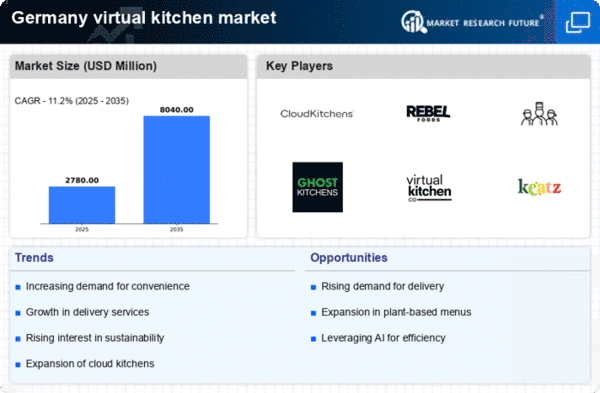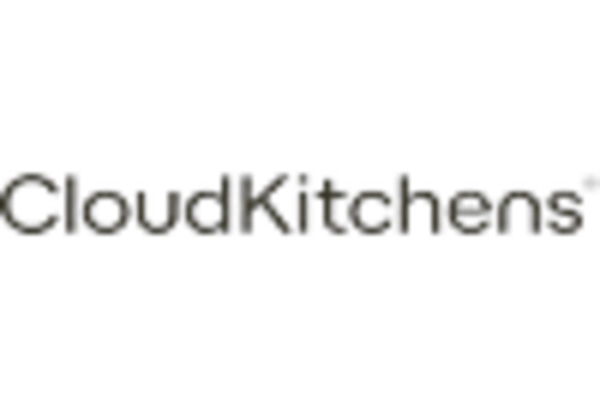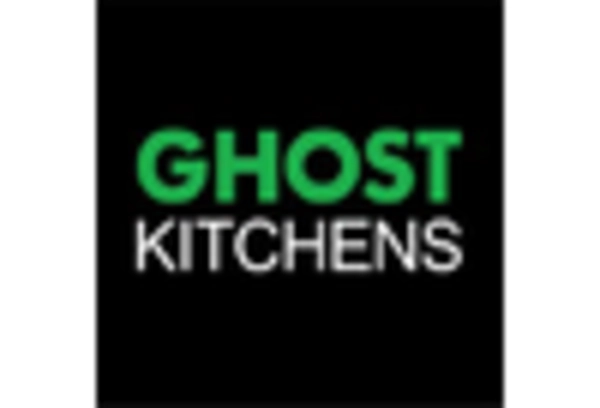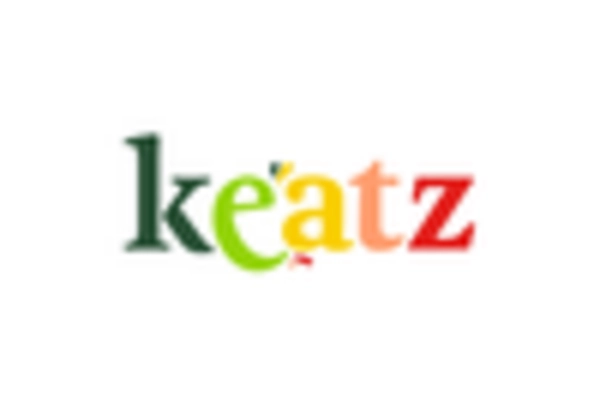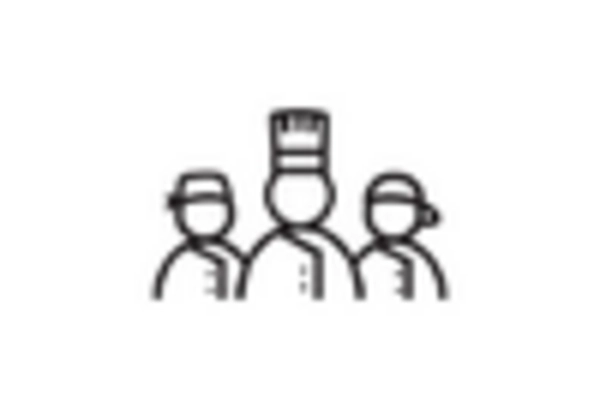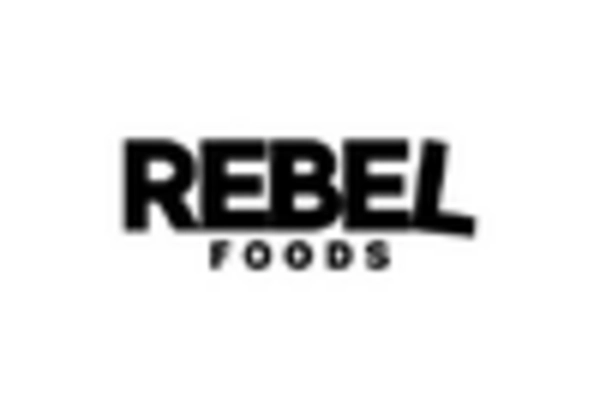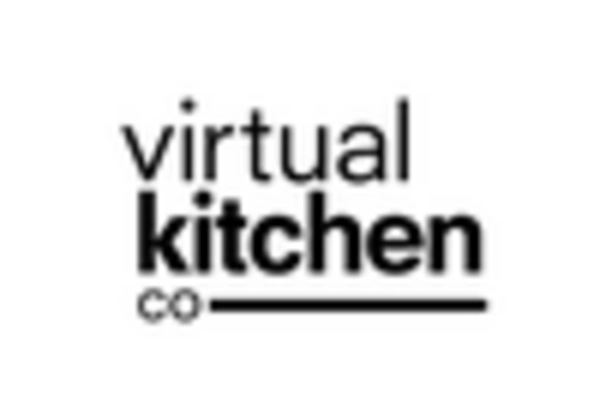Increasing Urbanization
The trend of urbanization in Germany is driving the virtual kitchen market as more individuals and families move to urban areas. This demographic shift leads to a higher demand for convenient food solutions, particularly in densely populated cities. As urban living spaces become smaller, the need for efficient food preparation options increases. The virtual kitchen market appears to be well-positioned to cater to this demand, offering delivery and meal preparation services that align with the fast-paced lifestyle of urban residents. According to recent data, urban areas in Germany have seen a population increase of approximately 5% over the last five years, which correlates with a growing interest in virtual kitchen services. This urbanization trend is likely to continue, further propelling the market's growth in the coming years.
Technological Advancements
Technological advancements are playing a crucial role in shaping the virtual kitchen market in Germany. Innovations in food delivery logistics, mobile applications, and online ordering systems are enhancing the customer experience and streamlining operations for virtual kitchen providers. The integration of artificial intelligence and data analytics allows businesses to better understand consumer behavior and preferences, leading to more personalized meal offerings. Furthermore, advancements in kitchen equipment and food preservation technologies are enabling virtual kitchens to maintain high standards of food quality and safety. As technology continues to evolve, it is likely that the virtual kitchen market will see increased efficiency and customer satisfaction, further solidifying its position in the food service industry.
Rising Demand for Meal Kits
The growing popularity of meal kits in Germany is significantly impacting the virtual kitchen market. Consumers are increasingly drawn to the convenience of having pre-portioned ingredients and recipes delivered to their homes, allowing them to prepare meals with minimal effort. This trend is indicative of a broader shift towards home cooking, where individuals seek to balance convenience with the enjoyment of preparing their own meals. Market data suggests that the meal kit segment has experienced a growth rate of approximately 15% annually, reflecting a strong consumer interest. As virtual kitchens expand their offerings to include meal kits, they are likely to attract a wider customer base, thereby enhancing their market presence and profitability.
Changing Consumer Preferences
Consumer preferences in Germany are evolving, with a noticeable shift towards convenience and quality in food choices. The virtual kitchen market is benefiting from this trend as consumers increasingly seek out meal solutions that save time without compromising on taste. Research indicates that around 60% of German consumers prioritize convenience when selecting food options, which suggests a strong market potential for virtual kitchens. Additionally, the rise of health-conscious eating habits is influencing consumer choices, leading to a demand for healthier meal options. This shift in preferences is likely to drive innovation within the virtual kitchen market, as providers adapt their offerings to meet the changing tastes and dietary requirements of consumers.
Focus on Food Safety and Quality
In Germany, there is a heightened focus on food safety and quality, which is influencing the virtual kitchen market. Consumers are becoming increasingly aware of food sourcing, preparation methods, and hygiene standards. This awareness is driving demand for virtual kitchens that prioritize transparency and quality in their offerings. Regulatory bodies in Germany have established stringent food safety standards, which virtual kitchen providers must adhere to in order to gain consumer trust. As a result, businesses that emphasize high-quality ingredients and safe food handling practices are likely to thrive in this competitive market. The commitment to food safety and quality not only meets consumer expectations but also positions virtual kitchens as reliable options in the food service landscape.


